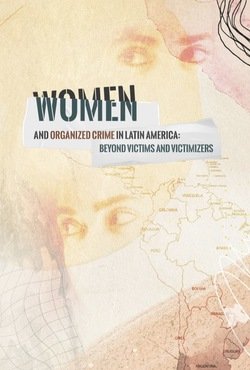By Hestia
.The number of potential victims of modern slavery in the UK is at its highest level since records began in 2009. London is a central hub for modern slavery offences; the Metropolitan Police has identified an increase of 12.6% in cases of modern slavery in London over the last three years. Modern slavery is a constantly evolving crime, with increasingly sophisticated recruitment and exploitation methods contributing to the growth of offences in London and across the UK. Hestia commissioned independent research agency Thinks Insight & Strategy to identify what modern slavery looks like in London today, and how it has changed in recent years. Central to the work was the need to bring the voices of those impacted by modern slavery to the forefront of a much needed conversation about modern slavery in the capital. Thinks Insight & Strategy conducted multi-method primary and secondary research to build a picture of experiences of modern slavery in London and understand public and political perceptions and assumptions. The research included: A scoping review of existing literature and data on modern slavery in the UK, including relevant data from the National Referral Mechanism (NRM) and from the Metropolitan Police (requested via an FOI) on instances of modern slavery in the UK and in London. Qualitative research, including six interviews with Hestia service users who have previously experienced modern slavery in London, one interview with a Hestia representative advocating on behalf of two service users who have experienced modern slavery in London and two interviews with experts in the field of modern slavery. Quantitative research, including a nationally representative online survey of 2,000 members of the UK public (including 265 based in Greater London) and an online survey with 99 MPs, completed prior to the dissolution of Parliament on 30th May 2024. The research found that: Modern slavery offences occur across every region of the UK, including in every London borough and are becoming more frequent. • Three in five (59%) adult potential victims referred to the NRM in 2023 stated they were exploited in the UK. • The number of NRM adult referrals increased by 70% between 2020 and 2023. However, modern slavery does not feel close to home for most. Just a quarter (25%) of the public believe that modern slavery is an issue in their local area. • This rises to 32% amongst those living in London. However, even here the public is underestimating the prevalence of the issue: data from the Metropolitan Police shows that numerous modern slavery offences occurred in every London borough in 2023. • Data shows that in 2023, across adults only, British citizens were the second largest group by nationality amongst adult victims of modern slavery (behind Albanians). However, only 10% of the public agrees that British citizens are one of the most likely nationalities to become victims of modern slavery. Despite low understanding of the issue, the public lacks confidence that enough is being done to prevent modern slavery and to protect those impacted. • Seven in ten (71%) agree that more attention should be given to the issue of modern slavery in the UK. • Prevention is high on the public agenda: 8 in 10 (81%) agree that the UK Government should do more to deter traffickers and those who commit modern slavery offences. • Similar proportions (78%) also agree that the UK Government should do more to support those who have experienced modern slavery. While the public want to see the Government take more action to prevent and support victims of modern slavery, MPs remain divided on whether new UK legislation will have an impact. • Just under half (47%) of MPs think new UK legislation (such as the Illegal Migration Act and the Nationality and Borders Act, and Safety of Rwanda Act) will not significantly reduce modern slavery in the UK, and 45% agree that new UK legislation will not deter traffickers1. • Labour MPs are significantly more likely to think that new UK legislation will not have an impact on reducing modern slavery and deterring traffickers than Conservative MPs. Note that fieldwork with MPs was carried out in May 2024, before policies like the Safety of Rwanda Act were axed by the current Government.
London: Hestia, 2024. 28p.






